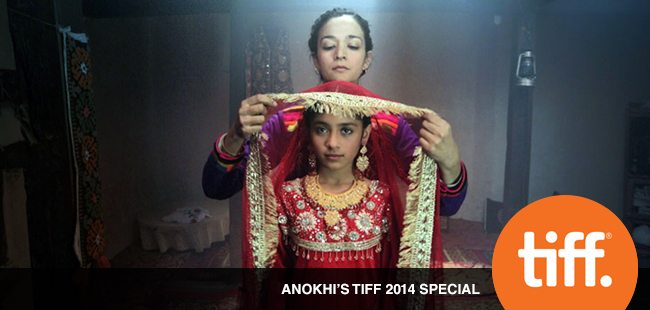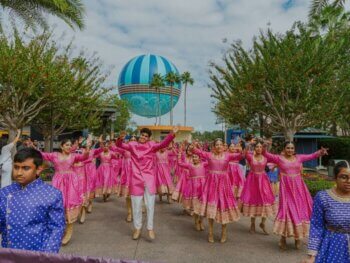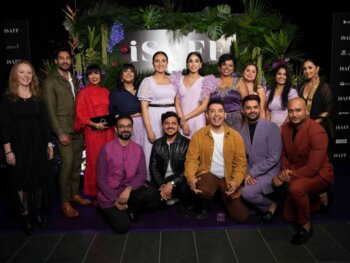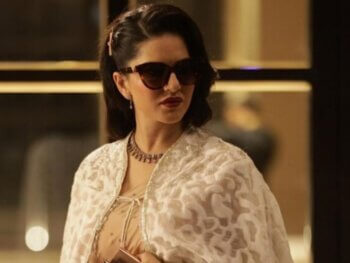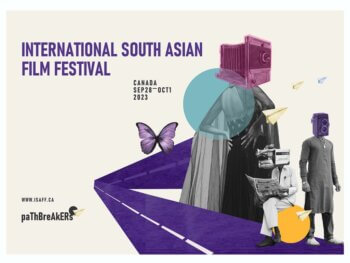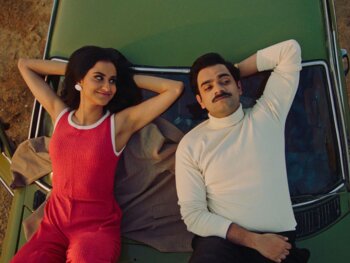Afia Nathaniel crafts a thrilling yet intimate chase through uncharted Pakistani territory.
One of the most buzzed-about South Asian entries at this year’s fest, Dukhtar follows a Pakistani woman (Sumiya Mumtaz) who goes on the run with her 10-year-old daughter (Saleha Aref) after her husband offers the girl up in marriage, as part of a peace treaty.
The pulse-pounding chase film and a nuanced, absorbing character drama premiered Friday. Not long afterward, I sat down with writer-director Afia Nathaniel to talk about her decade-long journey in getting this film made.

Matt Currie: Dukhtar had its world premiere last night. What was the response like?
Afia Nathaniel: The response was tremendous. People were very excited. For them, it was an experience and a window into a country and cinema that they haven’t really seen before. There were tears in their eyes; and across the board — not just the South Asians.
MC: Where did the idea for this film come from?
AN: Several years ago, I was working for the YWCA. I heard the story while working there, of this woman who runs away from her tribal area in Pakistan. And she runs away with her two daughters. Her real story was very different, very complicated, but that image stuck in my mind — this mother’s journey and a search for a new life for her child. I couldn’t really let go of it until this film was actually made.
MC: And how long did that take?
AN: Ten years almost. Because it is always very challenging to find money for a film that has two female protagonists, and it’s by a first-time female filmmaker. And within our own country, in Pakistan, there’s really no tradition of women’s stories on cinema. So it [was met with] great suspicion and a big question mark, because there’s no song-and-dance routine, there’s no catering to the male fantasy.
MC: What was the biggest challenge once filming commenced?
AN: Just the nature of our shoots. We were going to be on the road for two months to film in deep mid-winter, in a very desolate area and an area that’s disputed between India and Pakistan. From a security point of view, there were many challenges to address. There were bomb blasts happening in the region. We’re the first feature film to ever go into those areas and shoot.
MC: One of the things I found interesting about the film is your treatment of the male perspective; men are mostly the antagonists in this film, but they are also quite nuanced characters.
AN: You know, there’s a devil within the angel and an angel within the devil. And there’s these shades of grey. That’s more interesting than just “the bad guy.” And especially for the father’s role. I didn’t want him to come across as someone who is doing a business deal for the sake of doing a business deal. He’s responsible for the lives of his entire clan; and if he can save the lives of so many people in his clan by making this deal for marriage . . . it’s important for the whole socio-political background to be understood.
MC: You dedicated this film to your mother. Did the process of working on it for a decade make you see your mom in a different light?
AN: Sure. I mean, writing is so personal and when you do have such a personal story, you draw your strength from existing relationships. And I’ve always been very close with my mom, and I have a daughter. Last night, my mom was there. She hadn’t seen the film, and I wanted to have her see the dedication [in the closing credits], and she was crying. She’s seen the struggle I’ve had for many years. It was very special.
All Images courtesy of tiff
Matthew Currie
Author
A long-standing entertainment journalist, Currie is a graduate of the Professional Writing program at Toronto’s York University. He has spent the past number of years working as a freelancer for ANOKHI and for diverse publications such as Sharp, TV Week, CAA’s Westworld and BC Business. Currie ...


















































